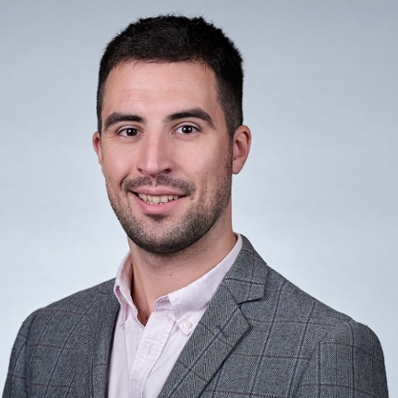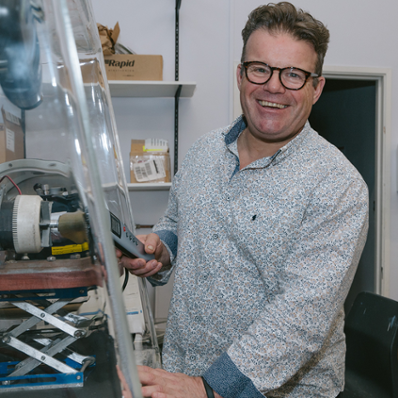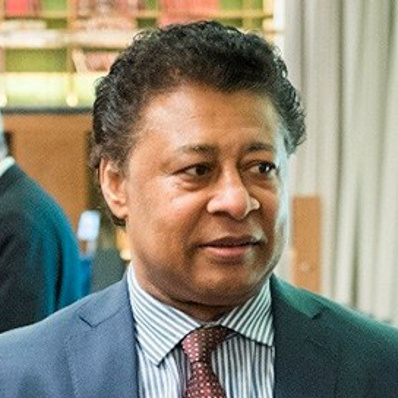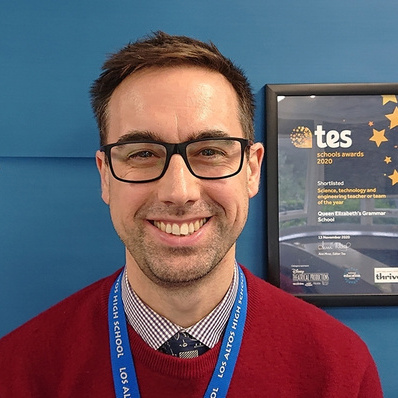Future Materials Conference 2021
The conference is intended to be a forum for early career materials, minerals and mining scientists and engineers from across the UK to come together and present their research on the materials they are developing and working with, with the hope of improving presentation and poster skills, along with initiating collaboration between research groups, and between industry and academia.
It is also a way of helping researchers and industry workers see how their work fits into the bigger picture of future materials, minerals and mining research and technology across the UK.
This will also be the closing of IOM3 'Sustainable Future' series of events, podcasts and editorial content.
Programme
10.00 Registration/Coffee
10.30 Welcome
Dr Ilija Rasovic MIMMM, Conference Chair
Session 1
10.40 KEYNOTE Neofossils: Bio-based plastics to sequester CO2
Professor Anthony J Ryan OBE
Director, The Grantham Centre for Sustainable Futures, The University of Sheffield
11.10 Using bridging flocculation for the development of a polymer-based point of care diagnostic for targeted detection of bacterial DNA
Elisabeth Trinh* & Lee Fielding (University of Manchester)
11.25 Man-made crystals for jewellery
Sofie Boons (University of West England)
11.40 The use of interleaved films to optimise the production of all-cellulose composites using textile waste
Ashley Victoria MEng, MSc (University of Leeds)
11.55 BREAK
Session 2
12.05 KEYNOTE Materials and Design Exchange (MaDE): Helping to Commercialise Metamaterials
Dr Robert Quarshie
KTN Head of Materials & MaDE Chairman
12.35 Exploiting the elastic properties of metallic glasses
Osama Shahin Elzoubi PhD*, Martin Stiehler & Konstantinos Georgarakis (Cranfield University)
12.50 DFT exploration of the family of 2D metal organic frameworks M(C4N2H4)C12
Andrea Iliceto (University of Birmingham)
13.05 Artificial neural networks for high throughput material discovery
Jordan Dorrell* & Andrew Morris (University of Birmingham)
13.20 Modelling amorphous zirconia using density functional theory
Christopher Owen MEng (University of Birmingham)
13.35 LUNCH
Session 3
15.00 Making the most of your IOM3 Membership
Mrs Sarah Boad
Membership Development Manager, IOM3
15.30 KEYNOTE You never know until you ask
Dr James Perkins CPhys
Queen Elizabeth’s Grammar School
16.00 Improving sustainability in the aluminium industry
Dr Michael Kenyon MPhys, PhD (Innoval Technology)
16.15 Understanding local microstructural evolution in tool steel processed by laser powder bed infusion additive manufacturing
Anna Tholen*, Rebecca Higginson, Lewis Jones, John Tyler & Nick Jones (Loughborough University)
16.30 Importance of electronic correlations for the magnetic properties of 2-dimensional ferromagnets
Dr Hrishit Banerjee* & Marcus Aichhorn (University of Cambridge)
16.45 Multi-scale in situ studies of deformation mechanism of L-PBF 316L stainless steels
Wanxuan Teng* & Biao Cai (University of Birmingham)
17.00 Closing remarks
Dr Ilija Rasovic MIMMM, Conference Chair
Martyn Jones CEng MIMMM, SECC Chair
17.15 End
Keynote Speakers

Chair, SECC
Dr Ilija Rasovic MIMMM
Sponsored by
 Rolls-Royce plc
Rolls-Royce plc
Rolls-Royce pioneers cutting-edge technologies that deliver clean, safe and competitive solutions to meet our planet’s vital power needs
Our Vision
Power is vital to the success of a growing and increasingly connected world.
At Rolls-Royce we believe in the transforming potential of technology. Our focus is on pioneering the power that matters for the needs of tomorrow as well as today.
Our Purpose
Our purpose is to use that power to connect, power and protect society.
Our Commitment
Few companies are better placed than us to help society transition to a low-carbon economy and this will drive our competitive advantage in the long term.
We are determined to use our position as a global power group to play a role in creating a resilient, inclusive, net zero carbon future.
We are tightly focused into three core operating businesses:
- Civil Aerospace
Civil Aerospace is a major manufacturer of aero engines for the large commercial aircraft, regional jet and business aviation markets.
The business uses its engineering expertise, in-depth knowledge and capabilities to provide through-life support solutions for its customers.
- Power Systems
Power Systems is a leading provider of high-speed reciprocating engines, complete propulsion systems and distributed energy solutions.
- Defence
Defence is a market leader in aero engines for military transport and patrol aircraft with strong positions in combat and helicopter applications.
It has significant scale in naval and is the technical authority for through-life support of the nuclear power plant for the Royal Navy's submarine fleet.
 Henry Royce Institute
Henry Royce Institute
The Henry Royce Institute is the UK’s national institute for advanced materials research and innovation. Royce was established to ensure the UK can exploit its world-leading expertise in advanced materials and accelerate innovation from discovery to application. With investment of over £330 million from the Engineering and Physical Sciences Research Council (EPSRC), Royce is ensuring that both the UK academic and industrial materials community have access to world-class research capabilities, infrastructure, expertise, and skills development.
From future cities and their energy supplies, to computing, manufacturing and medicine, the research and innovation facilitated by Royce has the potential to significantly impact peoples’ lives. With its Hub in Manchester and with capability distributed across nine founding Partners, Royce works collaboratively to create real solutions and make a fundamental difference to the UK economy.
Through a variety of access grants, Royce offers students, academics, and industry world-class equipment, expertise and training, to support their advanced materials research.
 MIDAS
MIDAS
THE MIDAS PROGRAMME…
…benefits from a unique set of industrially-relevant materials irradiated in a research reactor to very high fluence levels, which were contributed to the research team by Westinghouse and the international Nuclear Fuel Industry Research (NFIR) programme. Due to their unique nature these samples have significant worth, which, alongside core funding from the Engineering and Physical Sciences Research Council (EPSRC) industrial commitments, bring the total value of the programme to around £25 million.
The assembly materials studied are those used as protective cladding for the highly radioactive fuel used in a nuclear reactor. Due to the need to operate reactors as safely as possible, fuel is often removed well before it is spent (i.e. before all the energy is extracted) because not enough is currently known about these cladding materials, so plant operators must adopt a highly cautious, safety-first approach. This reduces the cost-efficiency of nuclear power as an energy option, as well as meaning that the fuel assembly prematurely becomes additional waste, which must be safely handled and stored over the long term.
Reactor safety, however, remains paramount, so MIDAS also has a dedicated work package, within Key Challenge 4, on better understanding fuel cladding behaviour in accident scenarios. The aim of this is to ensure that reactors remain safe in the event of an incident such as Fukushima, as well as including work on the development of accident-tolerant fuels.
A further key theme of MIDAS is to explore the use of zirconium alloys in critical components for future fusion reactors. The UK has a leading position in defining the materials that will be chosen for the ITER and DEMO international fusion projects, and this theme will contribute to maintaining the UK's reputation as a centre of excellence in fusion research.
Central to the programme is the use of UK facilities at which work on active samples may be undertaken. These include National Nuclear User Facility sites at the National Nuclear Laboratory, Materials Research Facility and The University of Manchester's Dalton Cumbrian Facility, as well as new capabilities made available through the Henry Royce Institute. These have received significant investment from the UK government, and MIDAS is a key beneficiary of this investment, as well as being a trailblazing project to showcase what research is possible at these new and enhanced facilities.
The ultimate goal of MIDAS is to help the UK, and other countries, meet carbon reduction targets, and achieve an energy mix that produces less CO2. The MIDAS team is therefore working closely with a range of UK and international industrial partners and stakeholders in addressing this challenge and translate fundamental research into real-world impact.

The Student & Early Career Group represents the views of student, younger and early career members to the Institute's Executive Boards and Advisory Council. We aim to represent the diverse range of members by ensuring Council representatives cover the different disciplines, regions and career pathways of student and early career members.





